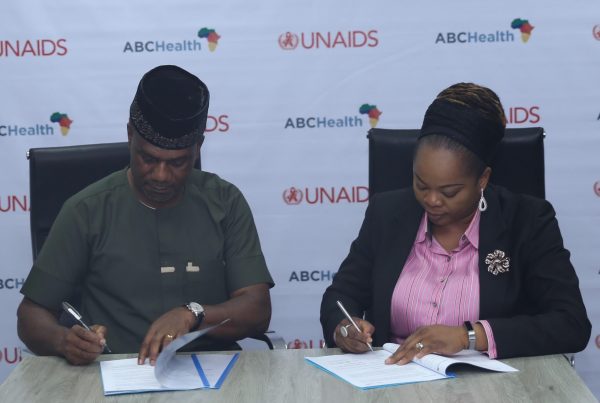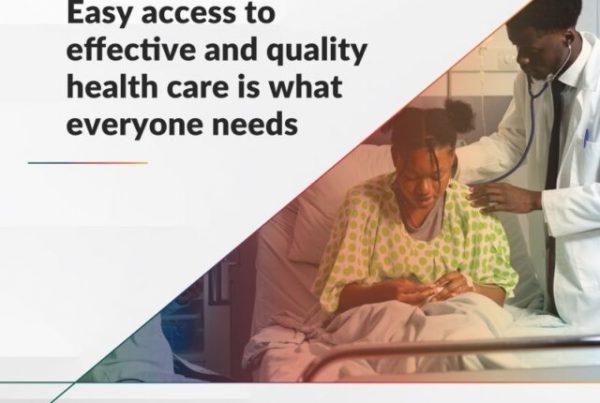PRESS RELEASE
Thursday June 1, 2023
Lagos, Nigeria
The failure of healthcare systems to put people first and mitigate against harm calls for all stakeholders to refocus and revisit public healthcare policies. On an international scale, the Covid-19 pandemic showed the world the need for a healthcare system for all, prioritising saving and enhancing lives.
However, research conducted before the pandemic showed that there was urgency in the need to improve healthcare quality, especially in middle and low-income countries.
The joint report by the Organisation for Economic Co-operation and Development (OECD), World Health Organisation and World Bank, published in 2018, titled Delivering quality health services: a global imperative for universal health coverage, was clear that poor quality health services are holding back progress on improving health in countries at all income levels.
The report found that inaccurate diagnosis, medication errors, inappropriate or unnecessary treatment, inadequate or unsafe clinical facilities or practices, or providers who lack adequate training and expertise prevail in all countries.
“The situation is worst in low and middle-income countries where 10% of hospitalised patients can expect to acquire an infection during their stay, compared to 7% in high-income countries,” reads the report.
The report revealed significant findings, including healthcare workers in low- and middle-income African countries having limited accuracy in diagnoses, low adherence to clinical guidelines for common conditions, and a discrepancy between service access and the availability of effective maternal and child health services in high-mortality countries in the Caribbean and Africa.
The report proposed a way forward directed at health policy-makers. It stated that role players in critical areas needed to work together with a “sense of urgency to enable the promise of the Sustainable Development Goals for better and safer health care to be realised.”
Governments were called to lead the way in forming new, stronger, more robust national healthcare quality policies and strategies. However, these calls have been made before and continue to be made.
The Transformation of South Africa’s Healthcare System: Progress and Challenges
In 1997, the Department of Health released a white paper outlining the transformation of South Africa’s healthcare system. The paper proposed policies to fundamentally reshape the delivery of healthcare, acknowledging the need for further improvements despite some initial gains.
Key areas of focus included the management of health services, with an emphasis on the district health system to enhance access to primary healthcare for all citizens. The paper also highlighted the importance of ensuring the availability of safe and high-quality essential drugs in health facilities, along with rationalizing health financing through budget reprioritization.
Furthermore, the white paper emphasized the development of a National Health Information System, aiming to strengthen health planning and management. Disease prevention and health promotion initiatives were also emphasized, particularly in addressing areas such as HIV/AIDS, sexually transmitted diseases, and child and women’s health.
The Department of Health acknowledged the need to leverage both public and private resources, presenting implementation strategies to meet the basic needs of all people despite limited resources.
However, more than two decades later, the South African health system’s ranking remains a concern, falling either midway or relatively low depending on the index used. This troubling statistic reflects a failure to provide all citizens with their fundamental human rights through an effective and equitable healthcare system.
National Health Insurance is a financing system that is designed to pool funds to provide access to quality and affordable personal health services to all South Africans based on their health needs, irrespective of their socio-economic status.
In this decade, calls for National Health Insurance have strengthened, though it was first touted in 1997. But due to the fragmented, burdened and highly complex system created over the years, progress is very slow.
It is glaring that the gap between those who can afford healthcare and those who cannot is widening. This reality screamed for attention during the Covid-19 pandemic.
The Department of Health has noted as one of the driving needs for the system is that though “eight out of 10 patients use public clinics and hospitals, the bulk of the country’s doctors, dentists and specialists work in the private healthcare sector serving a small section of the population leaving the biggest population in public hospitals is unattended.”
But this is just the tip of the health iceberg. Poor, outdated and inadequate health care policies have created a breeding ground for lack of resources, including personnel. This is also the breeding ground for preventable deaths.
Examining Healthcare Quality, Burden of Treatment, and Policy Challenges
Two years ago, Andrea Gaspar and J. Jaime Miranda conducted a study titled “The Burden of Treatment as a Measure of healthcare quality”: An innovative approach to addressing global inequities in multimorbidity.” Their findings revealed that system quality failures contribute to more deaths than those caused by HIV, tuberculosis, and malaria.
The study emphasized the profound impact of poor-quality care in low- and middle-income countries, stating that nearly 60% of the 8 million preventable deaths occurring annually in these regions are attributed to quality deficits.
Gaspar and Miranda stressed the urgent need to improve the quality of primary healthcare in order to prevent adverse downstream effects of poorly managed multimorbidity. They highlighted the negative consequences, including decreased quality of life, impaired functional status, added strain on already resource-constrained healthcare systems, economic burdens, and widening equity gaps for individuals living with chronic diseases.
“Patients will suffer from a poorer quality of life and diminished functional status. Healthcare systems that are already short on resources and money will become even more strained, negatively affecting economies and increasing the equity gap between those living with chronic diseases.”
Speaking at the Board of Healthcare Funders conference, Professor Mohambry Nadesan (Morgan) Chetty, Chairman of the IPA Foundation, argued that reducing harm in healthcare can enhance patient safety in Africa. Chetty expanded the concept of harm reduction beyond substance abuse to encompass various health-related risks and a broader health audience. He cited examples such as substance abuse, medical errors, hospital-acquired infections, inadequately equipped and under-resourced healthcare platforms, insufficient human resources for health, and poorly resilient health systems.
In answering whether scientists, industry, doctors and government in South Africa work together to ensure that science informs policy, he said scientists’ viewpoints are often overshadowed by political leanings.
“There is no balanced task team to debate their issues whose view stays the distance and dominates policy eventually. The population’s perception is that we are politically driven. Also of concern are unfinished policy directives and legislations, for example, the National Health Insurance Bill, which is yet to be signed into law and the Tobacco Products and Electronic Delivery Systems Control Bill, which is quite confusing,” said Chetty.
The change needed to ensure the healthcare sector indeed provides adequate healthcare for all has to be spearheaded by a government that will rope in all stakeholders and give them fair hearings. We saw how the multidisciplinary effort from all stakeholders strengthened the state’s response to the Covid-19 pandemic. South Africa’s response to the pandemic was not perfect. Still, it was head and shoulders above many developed countries because, for once, the country truly pulled in all its resources, its researchers, and technological tools and pushed legislative and policy changes faster than we have ever seen it happen.
If we could once again pool all those resources and be led, South Africa could have a thriving, somewhat equal and adequate health care regenesis that would have a positive impact on our economy, combat the inequality divide and truly elevate and recognise the right to basic health care enshrined in our Constitution.







